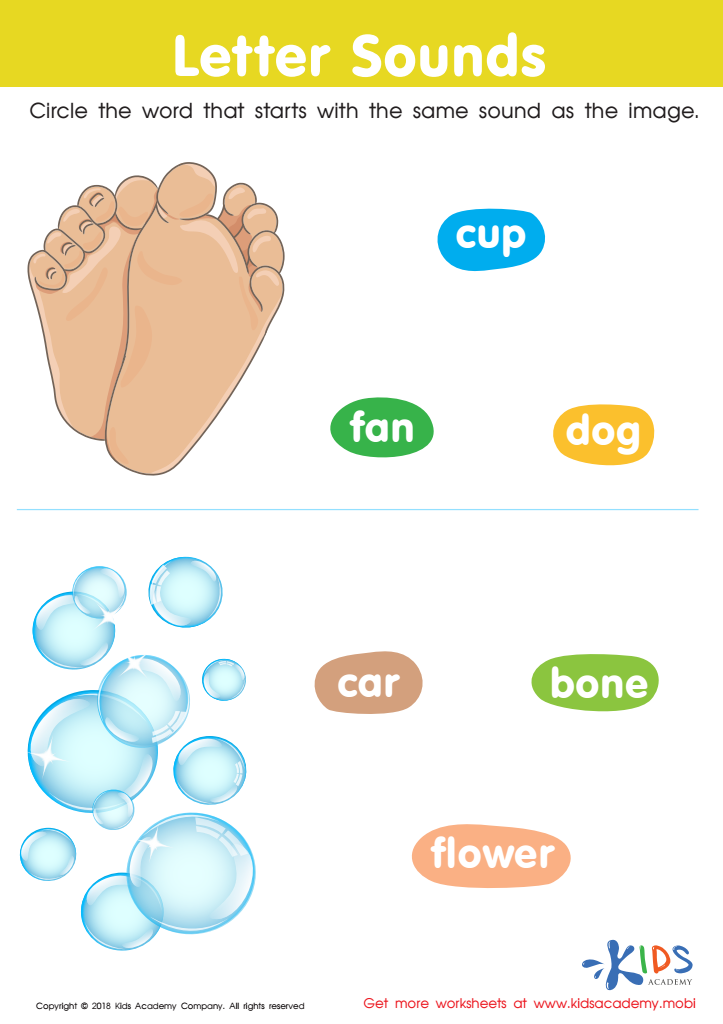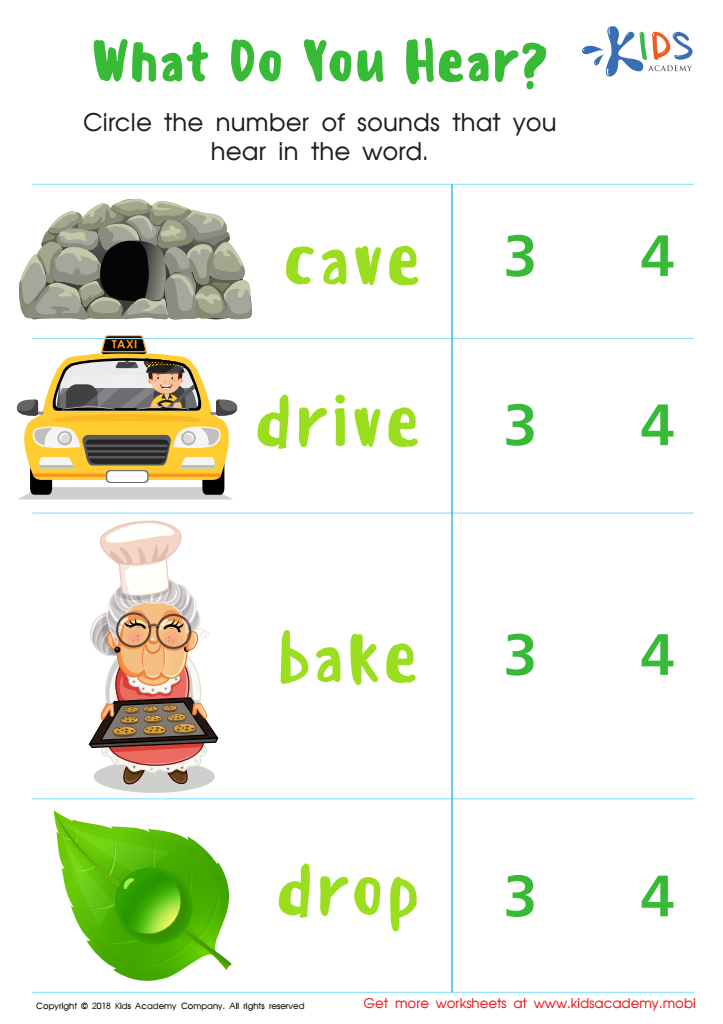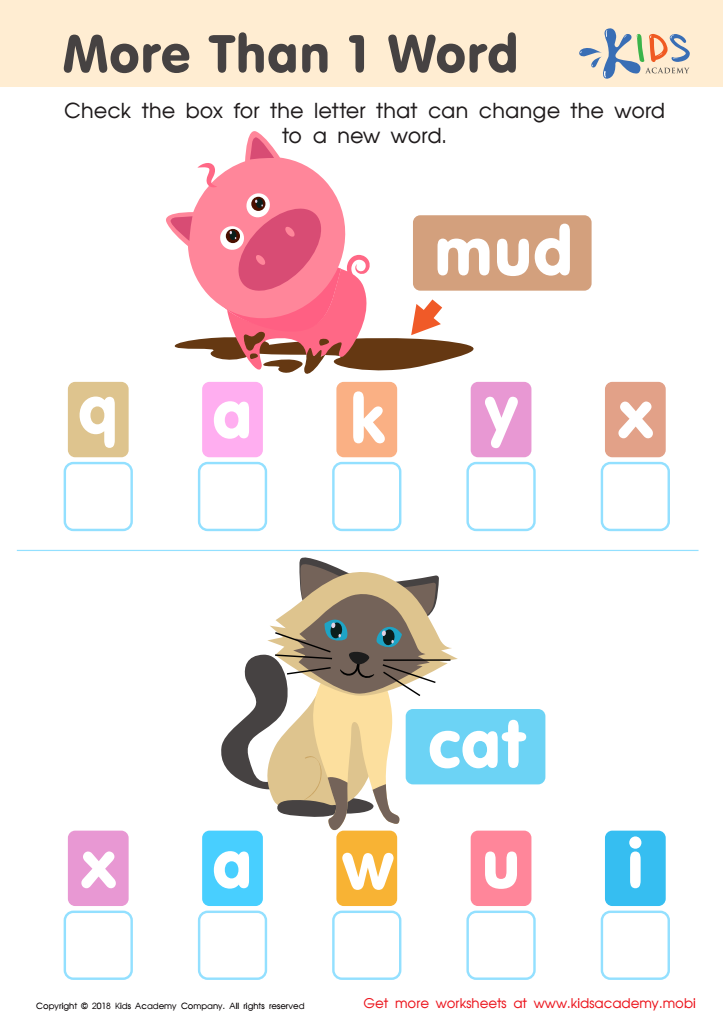Reading comprehension Letter Sounds Worksheets
3 filtered results
-
From - To
Enhance your child's literacy with our "Reading Comprehension Letter Sounds Worksheets." Designed for early learners, these worksheets focus on letter recognition and sound association, essential skills for developing reading proficiency. Each fun-filled activity promotes engagement, allowing children to practice sounding out letters while improving their comprehension abilities. Our resources help students connect the dots between letters and words, making reading enjoyable and accessible. Ideal for home or classroom use, these worksheets support early reading milestones, fostering a love for books and learning. Explore a variety of colorful and interactive exercises tailored to energize young minds and bolster their reading success!


letter sounds Worksheet


What Do You Hear? Worksheet


More than 1 word Worksheet
Parents and teachers should prioritize reading comprehension and letter sounds because they are foundational skills critical to a child's overall literacy development. Understanding letter sounds enables early readers to decode words, making it easier for them to read independently, which boosts their confidence and motivation. When children grasp the connection between letters and sounds, they can tackle new words, allowing for increased fluency and word recognition.
Reading comprehension, on the other hand, involves a child's ability to understand, interpret, and analyze texts. This skill is essential as it influences a child's academic performance across various subjects. When children comprehend what they read, they are better equipped to engage in discussions, answer questions, and extract relevant information needed for problem-solving.
Both letter sounds and reading comprehension foster critical thinking and stimulate curiosity, laying the groundwork for lifelong learning. Furthermore, strong literacy skills are linked to improved communication abilities and social-emotional development. Therefore, parents and teachers should collaborate to create an engaging literacy-rich environment, promoting daily reading practices and playful phonics activities, ensuring all children develop vital literacy skills for success in school and beyond.

 Assign to My Students
Assign to My Students



















